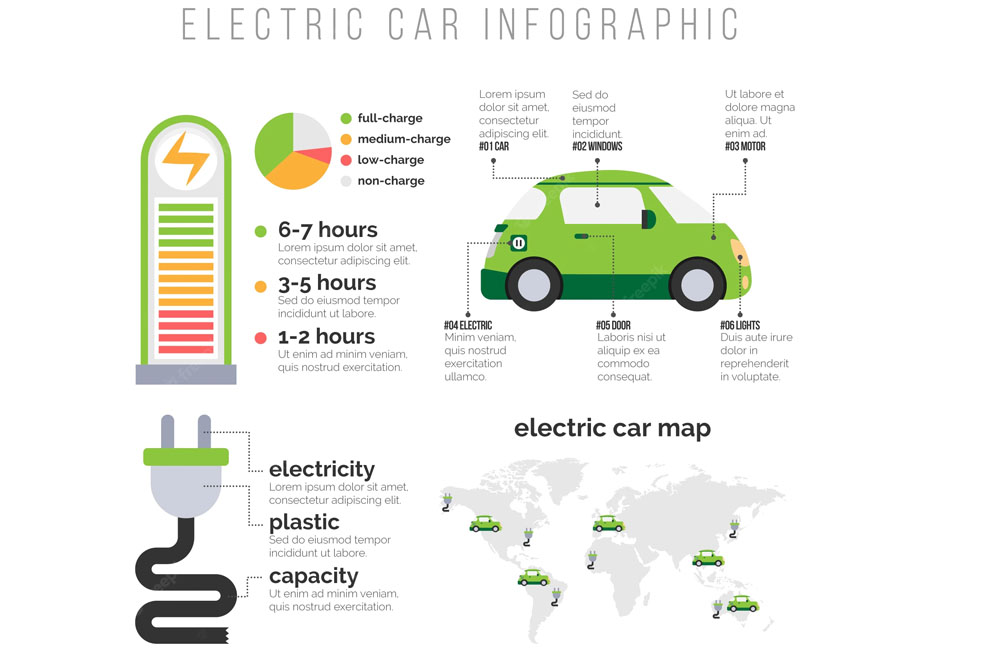
Products
Fast, Reliable, Everywhere

Solutions
Efficient, Innovative EV Charging Solutions.
News
We are committed to the innovation and application of EV charging.

The time it takes to charge an electric car can vary depending on several factors, including the type of charging station and the car's battery capacity.
Level 1 charging, which uses a standard household outlet, can take anywhere from 8 hours to 24 hours to fully charge a car. Level 2 charging, which uses a dedicated 240-volt charging station, can take around 4-8 hours to fully charge a car. Fast charging, which uses a DC fast charging station, can take as little as 30 minutes to an hour to charge a car to 80%. However, the charging time can vary depending on the battery capacity of the car and the power output of the charging station.
Electric cars are becoming increasingly popular as an eco-friendly alternative to conventional cars. But one of the biggest questions people have when considering an electric car is, “How long does it take to charge an electric car?” It's an important question to answer since it can determine how often you can use your car and how long you can go between charges. In this comprehensive guide, we’ll provide you with the answers you need to make an informed decision. We’ll explain the different factors that affect how long it takes to charge an electric car and provide detailed information about charging times for different types of electric cars. With this guide, you’ll be able to make an informed decision about whether an electric car is the right choice for you.
When considering how long it takes to charge an electric car, there are a number of factors to keep in mind. These include: - The type of electric car you drive - The age and condition of the car’s battery - The type of charging station being used - The average amount of electricity being used by the household During this process, there are two things to keep in mind. The first is that charging an electric car is different from refuelling a conventional car. This means that charging times will vary significantly from car to car. The second is that electric car charging times are highly dependent on external factors, such as the type of charging station being used and the amount of electricity being used at the time.
Now that we’ve looked at the factors that affect charging times, let’s take a look at the charging times for different types of electric cars. The following charging times are based on a variety of average conditions, including an average amount of electricity being used by the household and an average battery age. - Plug-in hybrid electric cars - around 3 hours - Battery electric cars - around 7 hours - Range-extended electric cars - around 2 hours - Hydrogen fuel cell electric cars - around 4 hours When it comes to charging times, it’s worth noting that there is a fair amount of variation between different models of electric car. This is important to keep in mind when looking at plug-in hybrid electric car charging times, as these are based on plug-in hybrid electric cars with a relatively low power rating. This means that plug-in hybrid electric car charging times could be as low as 2 hours for higher-end models.
When charging an electric car at home, it’s important to choose the right type of charging station. This will vary depending on the type of electric car you drive, but the most common charging station is a Level 2 charging station. Level 2 charging stations come with a variety of advantages when compared to other types of charging stations. First, they’re relatively inexpensive compared to other types of charging stations. Second, they can be used to charge a variety of different types of electric cars. And third, they generally provide relatively quick charging times when compared to other types of charging stations. Charging an electric car at home is generally relatively straightforward. If you already own a charging station, then the process is as simple as plugging the car into the charging station. If you don’t own a charging station, then you can buy one online or from a nearby store.
In general, public charging stations are designed to accommodate slower charging rates than charging stations used at home. This means that charging times may be longer than charging times at home. The most common type of public charging station is the Level 2 charging station. Level 2 charging stations are designed to provide relatively quick charging times for a single electric car. If multiple electric cars are plugged into the same charging station, the charging times will be extended accordingly. Public charging stations are generally located in areas where lots of electric cars are likely to be used. These include shopping malls, airports, and hotels. In many cases, public charging stations are free to use as long as you’re a member of a specific electric car network. If you’re planning on driving long distances with your electric car, a public charging station may be an ideal choice.
One of the best ways to reduce your electricity costs while charging an electric car is by using solar power. When charging an electric car with solar power, it’s best to use a solar charging station. Solar charging stations are designed to provide a constant flow of energy regardless of the amount of sunlight being received. Solar charging stations generally come with a number of advantages. First, they’re relatively inexpensive compared to other types of charging stations. Second, they’re able to keep charging an electric car regardless of external factors such as a drop in the amount of sunlight being received. Third, solar charging stations can be used to charge a variety of different types of electric cars.
